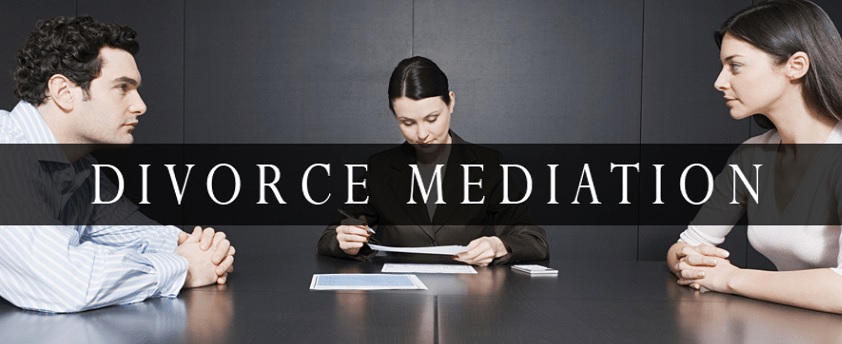7 Fundamentals About Divorce Mediation

Divorce mediation is a process to resolve your divorce. It is an alternative to litigation and a lot cheaper. But before you decide to use this process, you should know the basics. So let’s start by defining what mediation is and how it works. First, it’s a voluntary process.
Divorce Mediation is a Process
Divorce mediation is a process in which a mediator helps the parties reach an agreement by carefully framing the issues at stake. During mediation, each spouse presents their desired outcomes, and the mediator uses their skills to understand the priorities and needs of each party. The mediator will then narrow the issues down to the bare essentials. The parties may meet separately or jointly, and the mediator will ensure that the discussions are confidential.
Divorce mediation is an alternative legal process increasingly used to resolve divorce cases in New York. It involves a trained third-party mediator who facilitates discussion between the divorcing spouses. The process’s goal is to reach a mutually acceptable settlement agreement. The process typically starts with an initial meeting between the divorcing couple and the mediator. During the meeting, the mediator will explain the mediation process and answer any questions the divorcing spouses may have. This meeting will also help the mediator assess whether the couple is willing to work together to settle.
It’s a Voluntary Process
Divorce mediation is a voluntary process wherein the parties involved reach a mutual agreement to resolve the issues in the divorce. It is an alternative to courtroom litigation, which can be costly and emotionally draining. Divorce mediation costs less than half the price of litigation and is an excellent way to avoid such expenses.
Divorce mediation is a great option for couples that want to try to improve communication and co-parent their children. It will help them resolve their differences and encourage them to move forward with their lives.
It’s Cheaper
The cost of divorce mediation is lower than a court-mediated divorce, but it depends on a few factors. First, the complexity of the issues involved in the divorce must be considered. Complex issues may require more mediation sessions or require separate experts. Second, a complicated divorce may require more time to resolve. In addition, complex cases may involve extensive assets or difficult custody disputes.
A mediator may charge by the hour. The parties must pay for their mediator’s time, including phone calls, emails, and meetings. Moreover, the more time a mediator takes, the higher the cost. As a result, a party may feel pressured to hurry through the negotiations, resulting in issues later.
It’s Easier
Divorce mediation is faster and less costly than court proceedings, and it’s also easier on children. Divorce mediation aims to achieve the best outcome for the family. It’s also much easier on children, who are much less likely to witness a tense and stressful battle. In addition, divorce mediation can go much more smoothly than court proceedings, which require parties to adhere to a strict schedule set by the court.
While the process can be stressful, divorce mediation can be less expensive than a full-service divorce attorney. It’s also faster for children and can save thousands of dollars. However, even if both spouses want to go to court, the costs of hiring an attorney can add up quickly.
It Fosters Empathy
Empathy is a key component of the collaborative process. It helps us connect to other people and strengthens relationships. It also governs communication, making us understand what the other person cannot express. Empathy is a powerful tool developed with humility and preparedness to understand.
Divorce is an incredibly emotional time in one’s life. Unfortunately, people are often preoccupied with their feelings, so the right amount of empathy can make all the difference in the world. It can also help divorce couples work towards a solution that will benefit both of them.
It’s Confidential
Divorce mediation is a confidential process in which the parties negotiate the terms of their divorce. Although there are exceptions, such as domestic violence, child or elder abuse, or criminal conduct, all communications during the mediation process are confidential. In addition, any information disclosed to the mediator during the mediation process cannot be shared with either party without their consent. This is crucial for people going through a divorce because they are often unable to speak freely and will have difficulties communicating with each other.
The most important factor in ensuring the confidentiality of mediation is the agreement between the parties. Most mediators have a standard document destruction policy, which helps to prevent the submission of old records to third parties. Providing notice to each party before the destruction of documents can also discourage any unauthorized disclosure of documents. In addition, good mediators ensure that parties understand the rules and limits of confidentiality to be comfortable participating in the mediation process.
It’s a Good Option
Divorce mediation is a good option for couples willing to work out an amicable divorce agreement. In addition, the process can help couples with complex financial situations and young children or those who would prefer to keep the divorce private. However, it is important to keep a few things in mind before starting the mediation process.
Divorce mediation helps to minimize the emotional stress of the divorce process, and it is often more cost-effective than litigation. It also allows the parties to maintain a civil relationship with their ex-spouse. It also helps to reduce the stress on the entire family.











